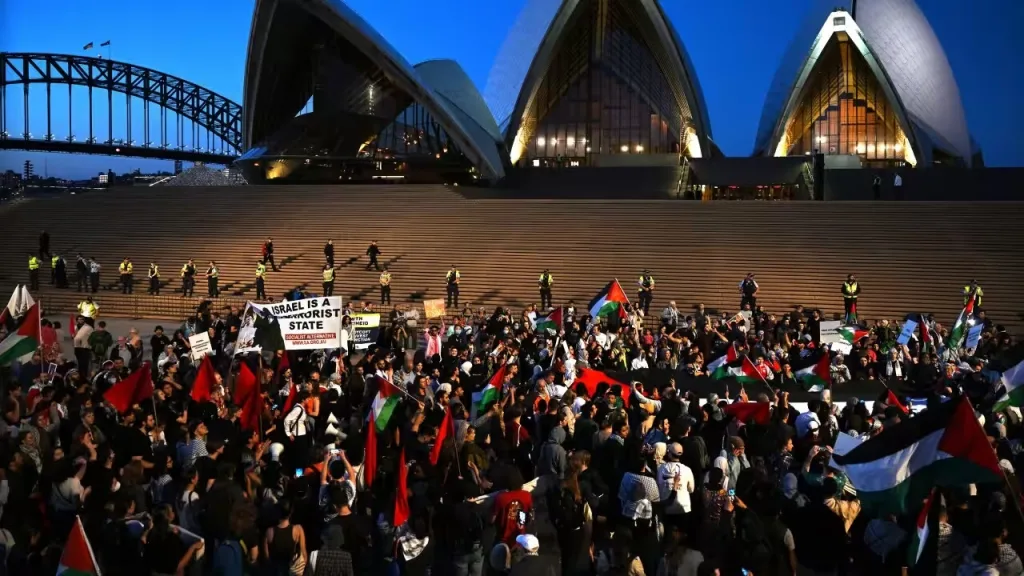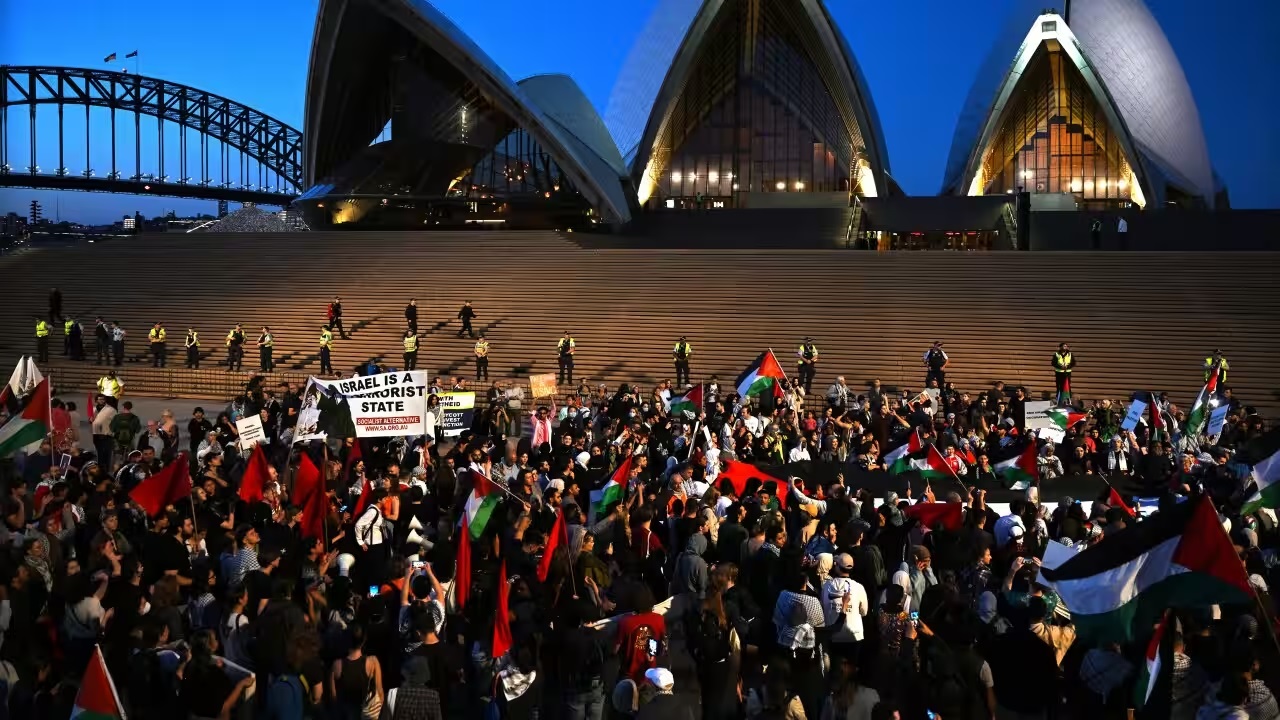Introduction:
Setting the Stage for the Silent Tragedy in Palestine

Unveiling the Tragedy in Palestine: In the heart of the Middle East, a haunting silence shrouds a devastating reality – the ongoing massacre in Palestine. The quiet complicity of the global community stands as a stark contrast to the cries of anguish from the Palestinian people. This blog aims to unveil the tragedy unfolding in Palestine, emphasizing the need for collective action and a departure from passive spectatorship.
The Unveiling of Horrific Realities
Describing the Unthinkable: 70 Lives Lost in a Single Building
In the heart of this tragedy lies a shocking revelation—a single building, witnessing the martyrdom of more than 70 people, a significant number being innocent children and women. The sheer magnitude of this loss is beyond words, demanding immediate attention and action.
Silence in the Face of Atrocity
Transitioning into the broader context, the blog sheds light on the ongoing massacre of Palestinians by what is referred to as the usurping Zionist beasts. This deliberate choice of words emphasizes the gravity of the situation and sets the stage for understanding the urgency of breaking the silence.
The Inadequacy of Language and Media
Beyond Words: The Challenge of Describing the Unthinkable
The limitations of language and the inadequacy of media in capturing the brutality unfold as crucial themes. The atrocities in Palestine defy verbal expression or the lens of a camera, underscoring the magnitude of the tragedy that demands a response beyond the ordinary.
A Pleading Cry: “Avoid the Sigh of the Oppressed”
Echoing the cries of the Palestinian people, the blog introduces the plea to avoid the sigh of the oppressed. This powerful sentiment serves as a catalyst for the call to action, as the narrative weaves together the voices of those directly affected by the tragedy.
The Unforgivable Crime of Silence
Shouting Palestinians: “We Will Never Forgive the Silence”
Transitioning into the heart of the matter, the narrative emphasizes the gravity of silence in the face of this carnage. The Palestinians, amidst their suffering, express their inability to forgive the silence of their Muslim brothers. This condemnation serves as a stark reminder of the collective responsibility we hold.
Awakening to the Reality: A Call to Challenge Rulers
The narrative pivots to a call for action, urging individuals to wake up and challenge their rulers. This plea underscores the power that lies within collective voices and the responsibility to hold those in positions of influence accountable for their actions or inaction.
Voices of the Oppressed
Quoting Testimonies: Amplifying the Suffering
To personalize the tragedy, the blog includes direct quotes from Palestinian testimonies. These authentic voices serve as a powerful means of amplifying the suffering and creating a connection between the readers and the real people experiencing the horrors.
The Resilience of a People
Balancing the narrative, the blog highlights the resilience of the Palestinian people. Amidst the tragedy, stories of strength and determination emerge, providing a nuanced perspective that goes beyond victimization.
Navigating Through Disinformation
Addressing Misconceptions: Separating Fact from Fiction
Recognizing the prevalence of misinformation, the blog navigates through common misconceptions. By emphasizing the importance of fact-checking and authenticity, it seeks to provide readers with a reliable understanding of the situation.
Encouraging Informed Discussions
To foster a deeper understanding, the narrative encourages informed discussions. By presenting the facts and dispelling myths, the blog aims to equip readers with the knowledge needed to engage in constructive conversations about the tragedy in Palestine.
A Call to Action
Awakened Consciousness: Mobilizing Global Support
The blog crescendos into a call to action, emphasizing the awakening of global consciousness. It explores ways to mobilize support for Palestine, urging readers to move beyond passive observation and become active participants in advocating for justice.
Challenging the Status Quo: Holding Leaders Accountable
A key component of the call to action involves challenging political authorities. By holding leaders accountable, the narrative suggests a pathway towards systemic change and the prevention of further atrocities.
Conclusion
Unveiling Truths: The Imperative for Action
In conclusion, the blog reflects on the imperative for action. It underscores the significance of breaking the silence surrounding the tragedy in Palestine and emphasizes that true change begins with acknowledging the truth and actively participating in efforts to bring about justice. For more information, so please visit this link.
Frequently Asked Questions (FAQs) – Silent Spectators: Unveiling the Tragedy in Palestine – A Call to Action
What is the main focus of the blog “Silent Spectators: Unveiling the Tragedy in Palestine – A Call to Action”?
The blog primarily focuses on revealing and bringing attention to the tragic events unfolding in Palestine, emphasizing the role of silent spectators and issuing a call to action for the global community.
Why is the tragedy in Palestine referred to as a “silent tragedy”?
The term “silent tragedy” is used to highlight the lack of attention and global discourse surrounding the events in Palestine. Despite the ongoing turmoil, the world, to a large extent, remains indifferent to the suffering, making it a tragedy that unfolds in silence.
What shocking revelation is mentioned in the section about the unveiling of a massacre?
The shocking revelation is centered around a single building where more than 70 people, including a significant number of innocent children and women, lost their lives. The magnitude of this loss is described as beyond words, demanding immediate attention and action.
Why is there a deliberate choice of words like “usurping Zionist beasts” in the blog?
The choice of words aims to emphasize the gravity of the situation, particularly in describing the ongoing massacre of Palestinians. It sets the stage for understanding the urgency of breaking the silence surrounding the atrocities.
How does the blog address the limitations of language and media in describing the tragedy in Palestine?
The blog acknowledges the inadequacy of language and media in capturing the brutality of the events. It explores the challenge of expressing the unthinkable and underscores the need for a response beyond the ordinary.
What is the significance of the plea to “avoid the sigh of the oppressed”?
The plea is introduced to emphasize the impact of silence on the oppressed. It serves as a powerful sentiment, acting as a catalyst for the call to action, weaving together the voices of those directly affected by the tragedy.
Why is silence labeled as an “unforgivable crime” in the narrative?
Silence is labeled as an “unforgivable crime” as the narrative emphasizes the gravity of staying silent in the face of the carnage. The Palestinians express their inability to forgive the silence of their Muslim brothers, highlighting a collective responsibility.
How does the blog encourage informed discussions about the tragedy in Palestine?
The blog addresses common misconceptions and misinformation about the situation in Palestine. By emphasizing the importance of fact-checking and authenticity, it aims to equip readers with the knowledge needed to engage in constructive conversations.
What is the central theme of the “Call to Action” section in the blog?
The central theme is to awaken global consciousness and mobilize support for Palestine. It encourages readers to move beyond passive observation and become active participants in advocating for justice, challenging the status quo and holding leaders accountable.
How does the blog conclude and what is the imperative for action?
The conclusion reflects on the imperative for action, underscoring the significance of breaking the silence surrounding the tragedy in Palestine. It emphasizes that true change begins with acknowledging the truth and actively participating in efforts to bring about justice.

